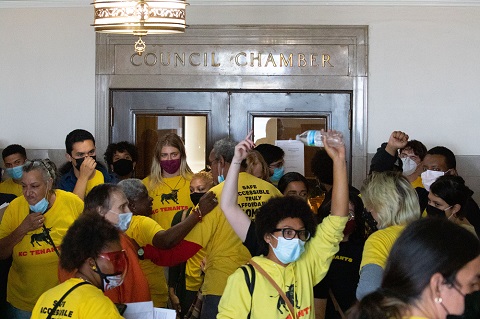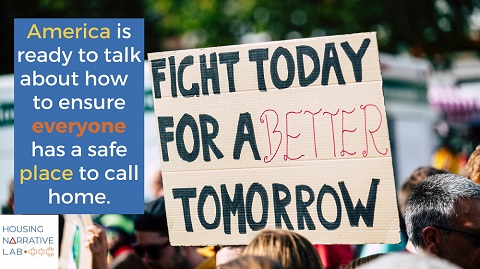INSP: Your time at Street Roots is coming to an end at (what is hopefully!) the tail end of a period of profound uncertainty and unpredictability for street papers. In your 18+ years at Street Roots, have you experienced anything that comes close?
Joanne Zuhl: For all the challenges Street Roots and street papers have faced over the years, the pandemic clearly hit closest to the bone for our vendors. The crisis took away their bread and butter. There simply wasn’t anyone going out anywhere to buy the paper. Fortunately, like other organizations, we pivoted to create alternative employment opportunities for vendors, addressing the emerging needs that the pandemic made apparent on the streets. It was a new environment, but the creativity of the vendors and staff – and the support of our community — got us through, and honestly, I think we’re emerging a stronger and more diverse organization for the experience. I hope so, because uncertainty and unpredictability are always in the mix.
Before joining Street Roots what did you know about the street paper concept and those already in existence, if anything?
Not at all, honestly. I’d worked at mainstream newspapers up until then, and it was shortly after moving to Portland in 2002 that I first saw a Street Roots and became aware of the organization. What intrigued me more than the individual paper was the larger movement, the International Network of Street Papers, and at the time, the North American Street Newspaper Association. The idea of employing journalism, as free speech and an income, for people who need both the most, seemed pretty cool.

Street Roots has changed considerably over the years with you at the helm. What improvements and changes in that time have you found particularly memorable?
Seeing how far Street Roots has come is quite heartwarming, because it really is a testament to the hundreds of vendors and volunteers, writers and readers who believed in this organization’s mission and took it to where it is today. We were an all-volunteer monthly newspaper when I first volunteered. Today, we’re an award-winning weekly, with hundreds of vendors engaged weekly in our vendor program, and a staff of more than a dozen people working on advocacy, outreach, vendor development and journalism. And our family of volunteers has expanded ten-fold. It all happened because a whole lot of people said, “Yes, this is making a real difference.” I feel lucky to have been there to see it evolve.
Are there any stories or campaigns you feel particularly proud to have been a part of?
There are many projects that I’m proud of, not all for obvious reasons. But I’m mostly proud of the overall impact Street Roots has had on the community over time – more so than the individual successes. Over the years, we’ve changed for the better the way Portlanders think about homelessness, its root causes and what real answers look like. Readers are changed by our newspaper and their interaction with the vendors, and that creates this new space for better understanding the conditions out there, and subsequently the solutions. We can write a brilliant story, but without that fertile ground of understanding, it won’t stick. We’ve documented real impacts from our reporting on criminal justice issues, environmental policies and on approaches to crises on the streets. I’m proud that our work over the years has helped shape both policy and programs for good.
“Over the years, we’ve changed for the better the way Portlanders think about homelessness, its root causes and what real answers look like. Readers are changed by our newspaper and their interaction with the vendors, and that creates this new space for better understanding the conditions out there, and subsequently the solutions. We can write a brilliant story, but without that fertile ground of understanding, it won’t stick.”
You’ve played a major role in supporting the International Network of Street Papers over a long period of time – what observations do you have about how it has evolved?
As member organizations have matured, so has the street paper movement overall. It’s great to see new papers get their legs under them and grow into leading voices in their communities. Each one has gone through years of struggles and breakthrough moments, and that makes the network stronger for the next new paper coming along. Papers today are eager to learn from each other, to consider a different approach to something that might be working elsewhere, and adapt it to their own organization. That kind of openness to innovation is what is going to keep the network strong – and it helps define a productive role for INSP to support the movement.
I was wondering if you could talk about the importance of editors and being edited, especially when modern newsrooms have had to downsize and condense and often lose capacity to thoroughly edit?
It’s true that newsroom cutbacks have taken their toll, and the 24-hour, multiplatform, instantaneous news cycle can make insightful editing a challenge. I can’t speak for other newspapers, but for Street Roots, we pride ourselves on comprehensive and engaging reporting, and that takes time and critical review — for the story in front of you and in planning the stories that should follow. We’re not tethered to producing breaking news, and that frees us up to think about an issue from other angles and take a deeper dive, maybe even finding a solution at the end of the journey.

Journalism can seem like a bit of a closed shop to people from certain backgrounds. As an editor who has worked with a diversity of contributors, including people with little professional experience of writing and reporting, how do you see the role of Street Roots and other street papers in facilitating people from marginalized backgrounds in not only having their stories told, but telling their stories themselves?
I think it’s at the heart of any street paper to provide a platform for those voices that have been pushed aside everywhere else. It’s not always conventional journalism as they teach you in school, but the paper is better for that unconventionality. Some of the most powerful pieces we’ve had in our paper have been written by people living in the margins, foster youth among them, and people who have first-hand insights on the struggles and triumphs unexperienced by most of our readers. More recently we’ve followed the lead of other street papers and brought vendors in to help conduct interviews for the paper, and we’ve recently created our MoJo [mobile journalism] program to create a training structure for vendors to gather their own stories for the paper. There’s a lot of power in that kind of journalism, for both the readers and the writers. And there’s authority — an empowerment — in being heard.
How do you see the future of Street Roots after your time there is over?
Street Roots is in a great place today, and that’s because of a whole community of people who have invested in its mission. There’s a promise there, I believe, that if Street Roots upholds it’s end of the bargain – providing critical journalism and creating opportunities for vendors — then the community will be there in support. And the need for thoughtful and productive reporting on environmental, economic and social justice — worldwide — only gets stronger with each passing year. There’s a lot of work ahead!
INSP members can download this Q&A from the INSP News Service here.




















